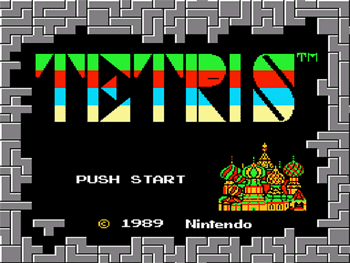We all knew Tetris was a satisfying game, but placing those blocks just so may do much more than rack up points—it might reduce the effects of anger associated with PTSD.
A study presented at the British Psychology Society’s Annual Conference this week suggests flashbacks, the jarring mental images that cause anger that haunt those suffering from post-traumatic stress disorder, can be significantly reduced by engaging in the visual-spatial tasks of video game play.
It is common for someone with (or in recovery from) post-traumatic stress disorder (PTSD) to experience anger. In fact, because the experience of anger is so common among people with PTSD, it is actually considered one of the hyperarousal symptoms of PTSD. Although anger can often lead to unhealthy behaviors (for example, substance use or impulsive behavior), the experience of anger in and of itself is not a bad thing. It is a valid emotional experience that can provide you with important information.
Tetris was the control game
 According to an Oxford University study with 60 participants exposed to 30 minutes of traumatic images. The researchers then took a third of them and had them play Tetris, another third played a pub quiz and the final third were left with nothing to do.
According to an Oxford University study with 60 participants exposed to 30 minutes of traumatic images. The researchers then took a third of them and had them play Tetris, another third played a pub quiz and the final third were left with nothing to do.
What was discovered was that the study participants who played Tetris had the least number of flashbacks and a reduction in the flight or fight syndrome associated with anger to the disturbing video, while those that played the pub quiz game had the highest number of recollections with anger being a byproduct of the video. This has led many to claim this game would be a good solution for those suffering from post-traumatic stress disorder and help with anger management.
Tetris or any video game
Once again any tool that helps ones quality of life to be free from the effects of anger and to cope with PTSD is a good thing but nothing beats counseling and anger management classes to get to the root of the matter.